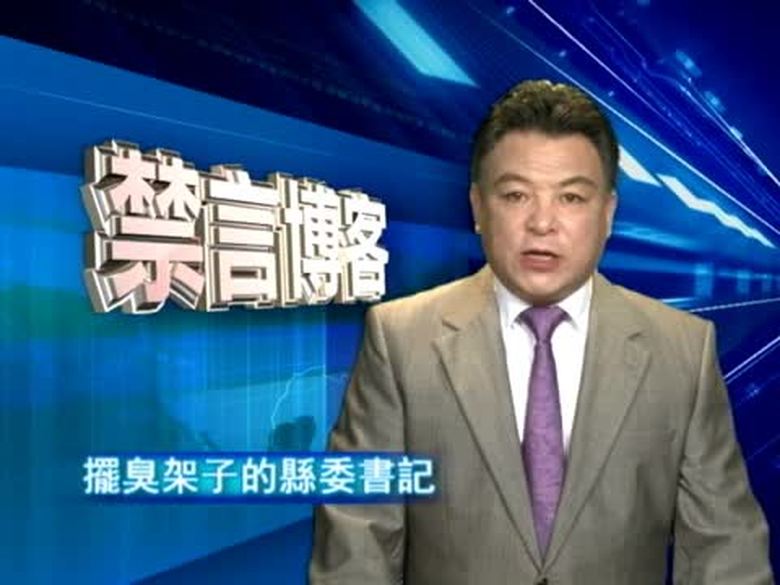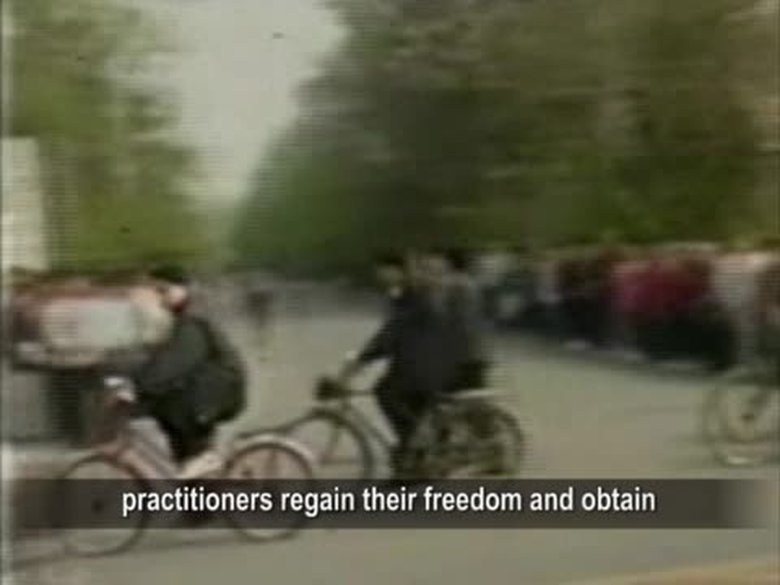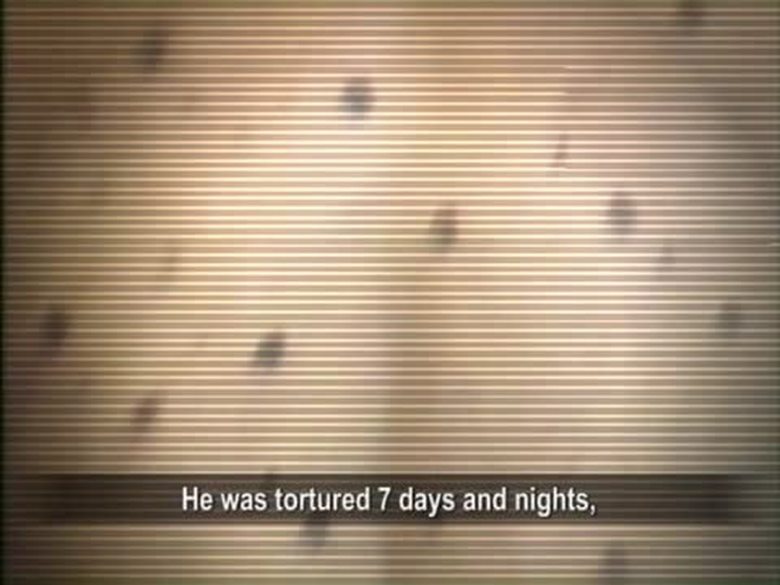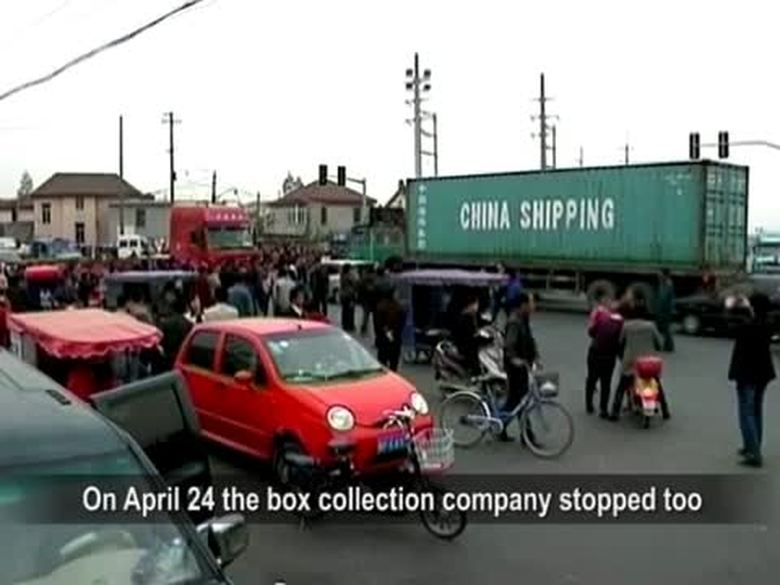【新唐人2011年4月23日訊】正當重慶要求民眾要會唱、愛唱36首紅歌時,21號,網上又突然曝出一條消息說,浙江省文化廳為“反三俗”,確定了37首違禁歌曲,而其中很多都是流行一時的台灣歌曲,一時間引發眾網友的圍觀熱議。有民眾開玩笑說,浙江當局的鼻子過於敏感,甚至在青菜裡也聞到了肉香。
對於浙江省文化廳的“禁歌令”,大陸網友幾乎是一面倒的批評聲音,僅網易有20多萬人回帖。
在這37首禁歌中,網民發現,有相當大一部分歌曲由台灣歌手陳升創作,使不少網民聯想到陳升的政治傾向,例如曾為藏民獻唱,支持台灣獨立。蘇芮的《牽手》這首歌曲有前台灣總統陳水扁的身影。鄧麗君演唱的《梅花》則是歌頌中華民國的。
山東教授:“鄧麗君,她唱的不是紅歌,你把她排列在外頭,但大陸很多人都非常歡喜,歡迎這些人的歌曲啊。用一些所謂的革命歌曲啊,歌頌大好形勢,歌頌美好社會,這種歌曲來麻痺民眾,這些實質大家很反感的。不是這些的就變成甚麼藍色歌曲、黃色歌曲,這都是很荒唐的做法,說明一些人還是想把大家的思想拉回到文革或文革以前的環境中去。”
面對大批網友的質疑,21號下午,浙江省文化廳執法處姚處長否認了這項禁令,他表示:文化廳沒有向所監管的歌廳、KTV發過任何有關“37首違禁歌曲”的文件。
同一天,溫州市鹿城區委宣傳部一位官員,在接受《人民網》溫州記者採訪時卻表示,他們只是在執行“浙江省文化廳”的命令。作為一個區級的“文化局”,他們並沒有權利規定禁令,溫州市鹿城區“文化局”對浙江省“文化廳”做出這樣的否認,他們表示難以理解。
一位不願具名的工作人員告訴媒體記者,省裏下達的“禁唱令”是通過辦公自動化系統發佈的,現在系統裏的有關文件已經被刪除,他們無從查詢。
還有知情網民透露,不但溫州禁唱這37首歌,嘉慶和寧波等地也曾收到禁令。對此,網友表示,當局知道不得民心了,就出來說誤傳,這是他們一貫的做法。也有網民猜測,36首紅歌之後,接踵而至的是37首禁歌,這兩者之間是不是有甚麼關係呢?
網友王先生:“有些歌曲我覺得浙江那方面說有關低級庸俗,我感覺並不是這方面的因素多一點,應該是政治方面的因素多一點,我把這件事和重慶唱紅歌的事做了一下對比,我覺得這也是國家往左拐的一個徵兆吧!別人唱甚麼,不唱甚麼,應該是別人的選擇。”
署名秀才江湖的博文則寫道:“浙江省文化廳的鼻子敏感得神乎其神,可以從青菜豆腐中聞出鮮肉的味道,居然可以從《牽手》的恩愛意境中查出不和諧因素。他表示,敏感是因為恐懼,而恐懼是因為心虛。”
新唐人記者黎安安、孫寧綜合報導。
Zhejiang Bans 37 Songs
As Chongqing's government demands the public
to love and sing 36 Communist “red songs”,
on April 21, there were rumors online that in Zhejiang,
the Culture Bureau was planning to ban 37 songs.
Many are Taiwanese songs that were popular in China.
It triggered a heated debate among Chinese netizens.
Zhejiang Culture Bureau's song banning order
has drawn criticism from Chinese netizens.
On 163.com alone, over 200,000 replied to the news.
Among the 37 songs, many are composed by
Taiwanese singer Chen Sheng.
Many netizens think of Chen's political orientation.
He supports Tibetans and Taiwan』s independence.
Taiwanese singer Julie Su's song "Holding Hands"
is linked to former Taiwan President Chen Shui-bian.
Teresa Teng's song "Plum Blossoms" praises
the Republic of China (Taiwan).
A Shandong-based professor:
Teresa Teng's songs are not communist red songs.
However, many Chinese like these singers' songs.
Here, they use so-called revolutionary songs
to praise the “wonderful situation” and “good society”
and to numb the people, under the current regime.
Nearly everyone detests the nature of red songs.
Non-communist songs are labeled “blue” or “yellow”.
This is really ridiculous. They want to drag people
back to the environment of the communist
Cultural Revolution.
Bombarded by netizens' questions, on April 21,
Director Yao at the Culture Bureau denied the ban.
He said, the bureau didn't issue such an order to
karaoke bars monitored by the bureau.
On the same day, an official at Wenzhou City』s
Propaganda Bureau told the media that
they simply implemented the Culture Bureau』s order.
He said they couldn't understand
the Culture Bureau's denial.
An anonymous staff member told reporters that
the "37 song banning" order was issued through
an automated system.
All the relevant documents have been removed.
So they have no way to investigate.
Some netizens revealed that besides Wenzhou,
Jiaqing and Ningbo also received such banning orders.
Netizens commented that as the authorities
are aware of the unpopularity of their practices,
they came out to blame it on misinformation.
Some speculated the link between the “36 red songs”
and the banning of the 37 popular songs.
Netizen Wang: the Culture Bureau labeled some
songs distasteful and obscene.
I feel that this is more about politics.
I compared this with Chongqing's “red song” campaign.
I think it is a sign of the whole nation is turning left!
People's choices should be respected.
A blogger wrote, Zhejiang Culture Bureau has
a marvelously sensitive nose.
He said, the bureau's sensitivity stems from its fear,
and the fear stems from a guilty conscience.
NTD reporters Li Anan and Sun Ning
看下一集

【禁聞】425十二週年 揭“搞政治”之謎

【禁聞】中國個稅調整 專家:難減貧富差距

【禁聞】調查:七成中國人覺“勉強餬口”

【禁聞】藥家鑫判死刑 民意“勝利”或正常

【禁聞】學者評药家鑫“激情杀人”判死刑

【禁聞】學者評药家鑫“激情杀人”判死刑

【禁聞】學者評藥家鑫“激情殺人”判死刑

【禁聞】「一國兩豬」內外有別

【禁言博客】擺臭架子的縣委書記

【禁言博客】擺臭架子的縣委書記

【禁聞】華人眼中的425上訪 信仰的力量

【禁聞】從埃及到中國——訪人權活動家夏菲

【禁聞】學者:上海集卡司機罷工讓中共害怕

【禁聞】學者:上海集卡司機罷工讓中共害怕

【禁聞】中國家庭教會戶外禮拜 遭當局打壓

【禁聞】超生游擊隊 躲一子政策 居荒山12年








